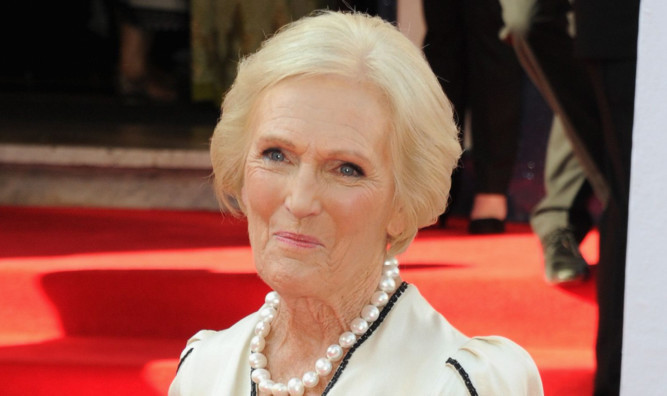
We can show love in the darkest moments.
Mary Berry is 79 years old and one smart lady. But she’s looking to the future and said last week that the last thing she wants is to be a burden to her children.
She stated that if she “lost her marbles” she’d like it if her family could give her a pill to enable her to take her own life.
But, as the law stands at the moment, she realises they would be committing a criminal offence. She also understands that a change in that law could be open to abuse.
The Queen of cakes has raised a subject which affects almost every family in Britain. With an ageing population which is living longer, what do we do about mum and dad and do we know what they’d want?
This moral dilemma affects thousands of people in Britain today. The Assisted Dying Bill is about to come under the scrutiny of the House of Lords and this Bill aims to legalise the practice of assisted suicide for some terminally-ill patients. There are no easy answers on this subject.
Many people suffering incurable diseases want to put an end to their suffering. Scots politician Margo McDonald put up a brave, humane and passionate plea for the law to be changed to allow sufferers to end their life.
Her voice was one of the most reasoned I’ve ever heard for permission to die with dignity. But this subject is so personal that I wonder how any law can ever fully express the heartfelt wishes and the fearful anxieties of so many people.
When does life cease to have meaning and become unbearable? Surely that’s different for every person.
You look at a loved one suffering pain and discomfort from a terminal disease, but do you really know if they’d want it to be over?
Alzheimer’s disease is cruel in the way that it robs a family of the person they knew and loved.
Yet I know, from watching my brother-in-law gently and sensitively caring for his father, that there were precious moments when they still had a connection which mattered.
Love is a very strange thing and sometimes adult sons and daughters can, with caring and sensitivity, give their parents support to live out their days with simple pleasures and satisfaction.
Yes, there are often exhausting times too which can try the patience to breaking point. And I know that, like most people, the last thing I’d want is to put my children through the stress of caring for me if, in Mary’s phrase, “I’d lost my marbles”.
But despite all this, I cannot help but feel that life is such a precious gift that even in the darkest moments it shouldn’t be snuffed out. The sick, the old and the disabled have something to give. Their lives are not without value.
With every breath we take, we have a chance to experience our humanity. To reach out to each other, to show this is what it means to be alive, to grow old, to become ill.
And even in the pain of that, there is still a chance to show love.

Enjoy the convenience of having The Sunday Post delivered as a digital ePaper straight to your smartphone, tablet or computer.
Subscribe for only £5.49 a month and enjoy all the benefits of the printed paper as a digital replica.
Subscribe